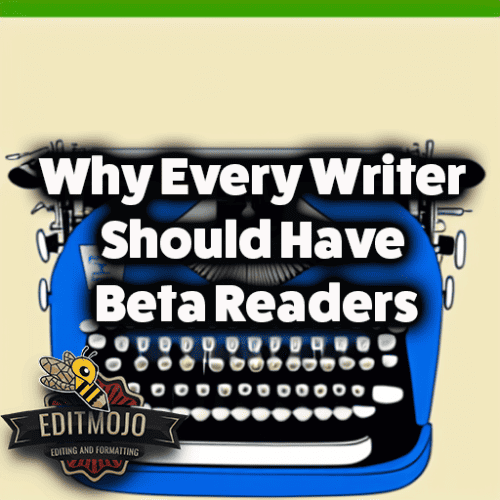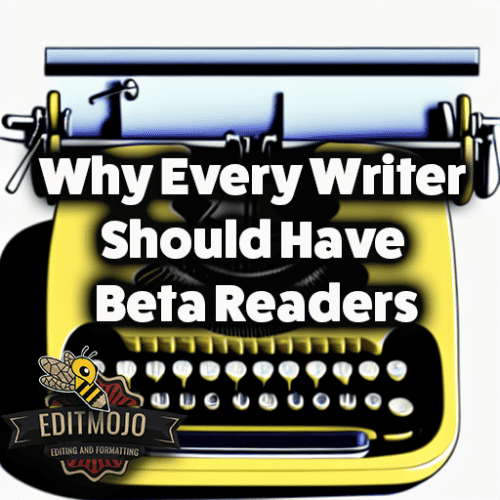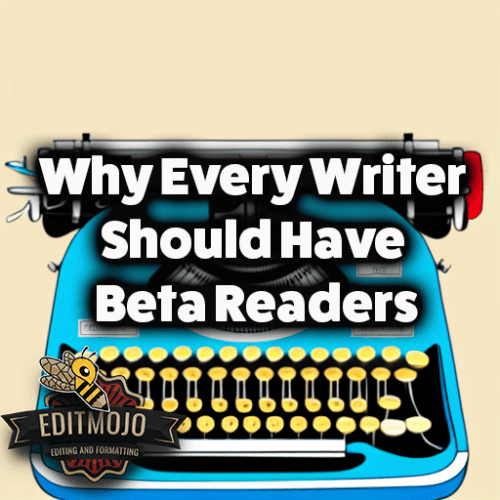Why every writer should have beta readers
Why every writer should have beta readers. As we delve into the complex tapestry that is the writing process, we come across an often overlooked yet pivotal player – the beta reader. Originating from the software development world, where ‘beta’ represents a testing phase, the concept of beta reading has steadily gained prominence in the realm of writing and publishing. Today, we stand at a juncture where the beta reader’s significance is more relevant than ever before. Let’s unravel this intricate thread together.
Key Takeaways Table
| Key Point | Explanation |
|---|---|
| Role of Beta Readers | Beta readers are the first readers of a writer’s work and provide a fresh, external perspective to the narrative. |
| Benefits of Beta Readers | Beta readers offer multiple benefits, including broadening the writer’s perspective, enhancing content quality, ensuring authenticity and relatability, offering support, and providing early market feedback. |
| Selecting Beta Readers | Good beta readers should be able to provide constructive feedback and understand the writer’s vision. They should be found in diverse demographics for a broad range of feedback. |
| Maximizing the Use of Beta Readers | This includes effective communication of your expectations, filtering and interpreting feedback wisely, managing conflicting feedback, and expressing gratitude to beta readers. |
| Future of Beta Reading | With digital platforms and AI advancements, the beta reading process is set to evolve, including the emergence of professional beta readers. |
The Role and Importance of Beta Readers in the Writing Process
What makes the role of beta readers so fundamental to the writing process is their unique position as the ‘first readers’. They are the ones who step into the vivid landscapes created by authors before anyone else, providing an external perspective that’s critical for creating relatable and engaging content. In other words, beta readers act as the first quality check, a trial audience for the writer’s narrative.
Benefits of Having Beta Readers
Enhancing the Writer’s Perspective
It’s no secret that a writer, deeply immersed in their creation, may overlook certain details. It’s similar to missing the forest for the trees. This is where beta readers step in as a mirror, reflecting the overlooked aspects and broadening the writer’s perspective. They help writers to step outside their minds and view their work through the reader’s eyes, a unique vantage point that allows them to identify potential blind spots.

Improvement of Content Quality
Beta readers are the writer’s personal bug detectors. They help to catch inconsistencies, plot holes, and character issues that the writer may have missed. Their fresh eyes can find everything from subtle typos to jarring breaks in the plot that could potentially disconnect the reader.
Authenticity and Relatability
Have you ever read a book where the characters or situations felt so unreal that you were snapped out of the narrative? Beta readers help prevent that by ensuring characters and situations are authentic and relatable to the target audience. This is especially crucial for genres like historical fiction or science fiction, where an inconsistency could break the reader’s suspension of disbelief.
Encouragement and Support
The writing process can be a solitary journey fraught with self-doubt. Having beta readers can provide emotional and moral support, giving writers the encouragement they need to keep going.

Market Testing
Lastly, beta readers can also function as an early barometer of how well a book may be received by its target audience. Their reactions can help gauge reader interest and market viability, which can be crucial when pitching the book to publishers or deciding on self-publication.
The Art of Selecting Beta Readers
As with any art, selecting beta readers requires a keen eye. A good beta reader is not just someone who loves to read, but someone who can provide constructive feedback, understand the writer’s vision, and respect the confidentiality of the work. It’s also important to find beta readers who represent your target demographic.
Where to find these mythical creatures, you ask? Look no further than writing groups, online forums such as Goodreads, or even among your trusted friends and family.
However, remember to choose a diverse group to ensure a rich tapestry of feedback. Like having a palette with only one color, a homogenous group of beta readers may not give you the depth of feedback you need.
How to Maximize the Use of Beta Readers
Having chosen your beta readers, the next step is to make the most of this valuable resource.
Effective Communication
The key to getting the most out of your beta readers is effective communication. Make sure they know what kind of feedback you’re looking for, be it plot consistency, character development, pacing, or grammatical errors.

Filtering and Interpreting Feedback
While it’s essential to be open to feedback, remember that your vision should steer your story. Beta readers provide a fresh perspective, but that doesn’t mean you need to incorporate every suggestion. The trick lies in balancing feedback with your instinct and creative voice.
Navigating Conflicting Feedback
Conflicting feedback can be a nightmare for writers. When faced with differing opinions, consider factors such as the target audience and the overall impact on your narrative. Sometimes, you may need to trust your gut. After all, as Stephen King once said, “you’re the one telling the tale.”
Gratitude
Never underestimate the power of a simple thank you. A little gratitude goes a long way in acknowledging the time and effort your beta readers have put into your work.
Case Studies: Successful Authors and Their Beta Readers
Renowned authors like J.K. Rowling and Stephen King have utilized beta readers to great effect. Rowling famously allowed a small group to read early copies of the Harry Potter books, their input undoubtedly contributing to the series’ phenomenal success. Likewise, King’s wife, Tabitha, has been his principal beta reader throughout his prolific career, providing invaluable input that helped shape some of his most famous works.
Addressing Common Concerns about Beta Readers
Plagiarism
Concerns about plagiarism are common, but they can be mitigated with precautions such as confidentiality agreements or sharing your work in secure, trackable ways.
Unhelpful Feedback
Not all feedback is useful. Learning to sift through feedback to find the gems is a skill in itself.
Emotional Toll
Receiving criticism can be tough. But remember, it’s your work being critiqued, not you. As the acclaimed writer Neil Gaiman advises, “Remember: when people tell you something’s wrong or doesn’t work for them, they are almost always right. When they tell you exactly what they think is wrong and how to fix it, they are almost always wrong.”
The Future of Beta Reading
As we look to the future, digital platforms and AI advancements are set to revolutionize the beta reading process. Professional beta readers are emerging, providing expert feedback at a price. While some may see this as commodifying the process, others argue that it raises the bar for quality feedback.
Conclusion (Why every writer should have beta readers)
From providing critical feedback to ensuring relatability, beta readers are an invaluable tool in a writer’s toolkit. As we traverse through the intricate maze that is the writing process, they are our guiding lights, helping us refine our work and making the journey less solitary. So why not take the plunge and incorporate beta readers into your writing process?
Call to Action (Why every writer should have beta readers)
Take the step today. Find beta readers for your next writing project and experience the transformation they bring to your work. And remember, every piece of feedback, every suggestion, every critique, is a step towards creating a masterpiece. Don’t forget to share your experiences with beta readers in the comments or on social media. We’d love to hear your stories!
Top Five Questions and Answers Table
| Questions | Answers |
|---|---|
| What is a beta reader? | A beta reader is a non-professional reader who reads a written work, generally fiction, with the intent of providing constructive feedback before it is published. |
| Why are beta readers important in the writing process? | Beta readers provide a fresh, unbiased perspective on the narrative, help to catch inconsistencies and plot holes, ensure authenticity and relatability, and provide initial market feedback. |
| Where can I find beta readers? | Beta readers can be found through writing groups, online forums like Goodreads, or even among trusted friends and family. |
| How should I manage feedback from beta readers? | You should communicate your expectations clearly, learn to filter and interpret feedback, handle conflicting opinions wisely, and always show gratitude for their time and input. |
| What is the future of beta reading? | The future of beta reading includes digital platforms, AI advancements, and the emergence of professional beta readers, which can change the dynamics of feedback and raise the quality of input. |
